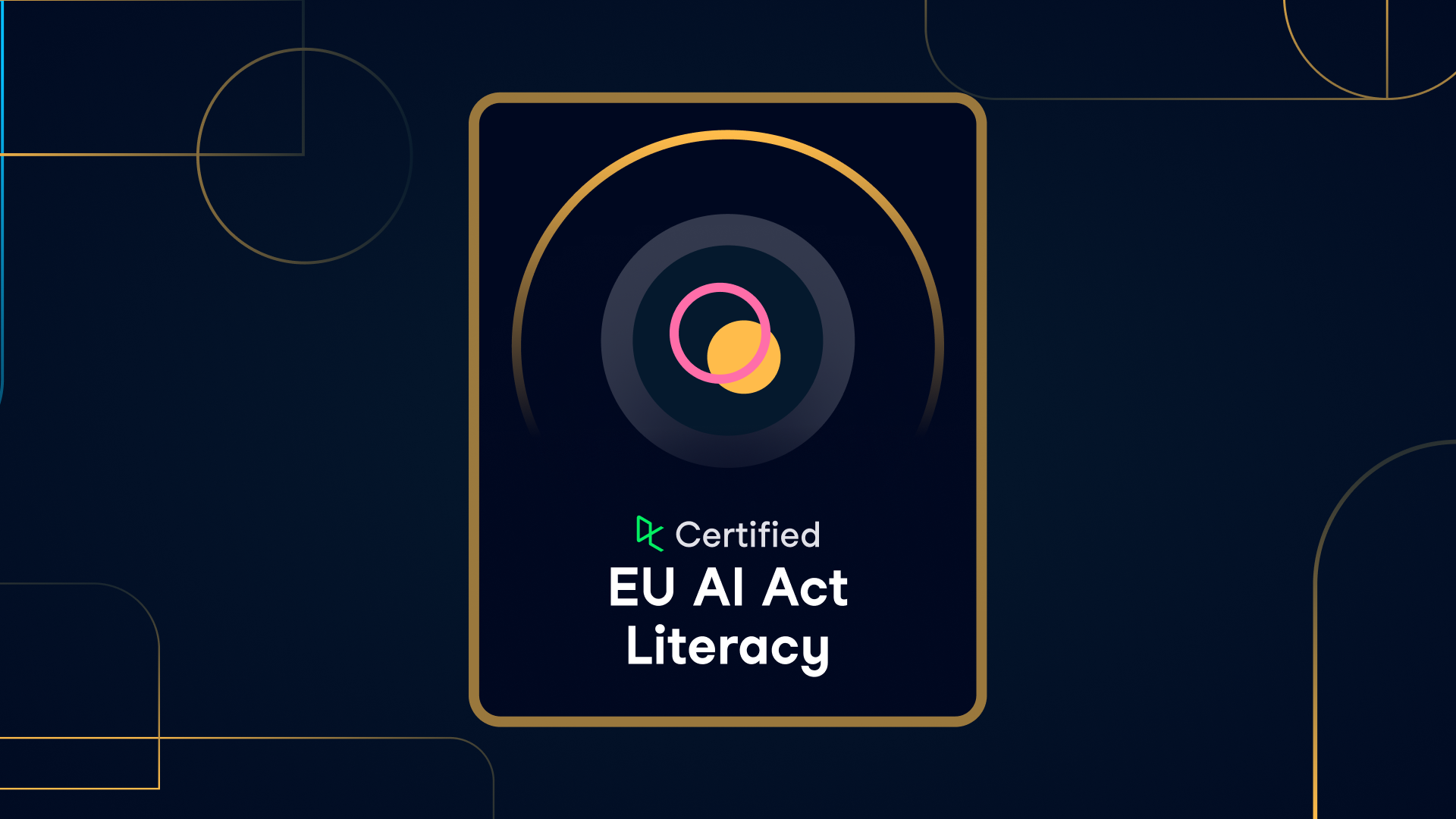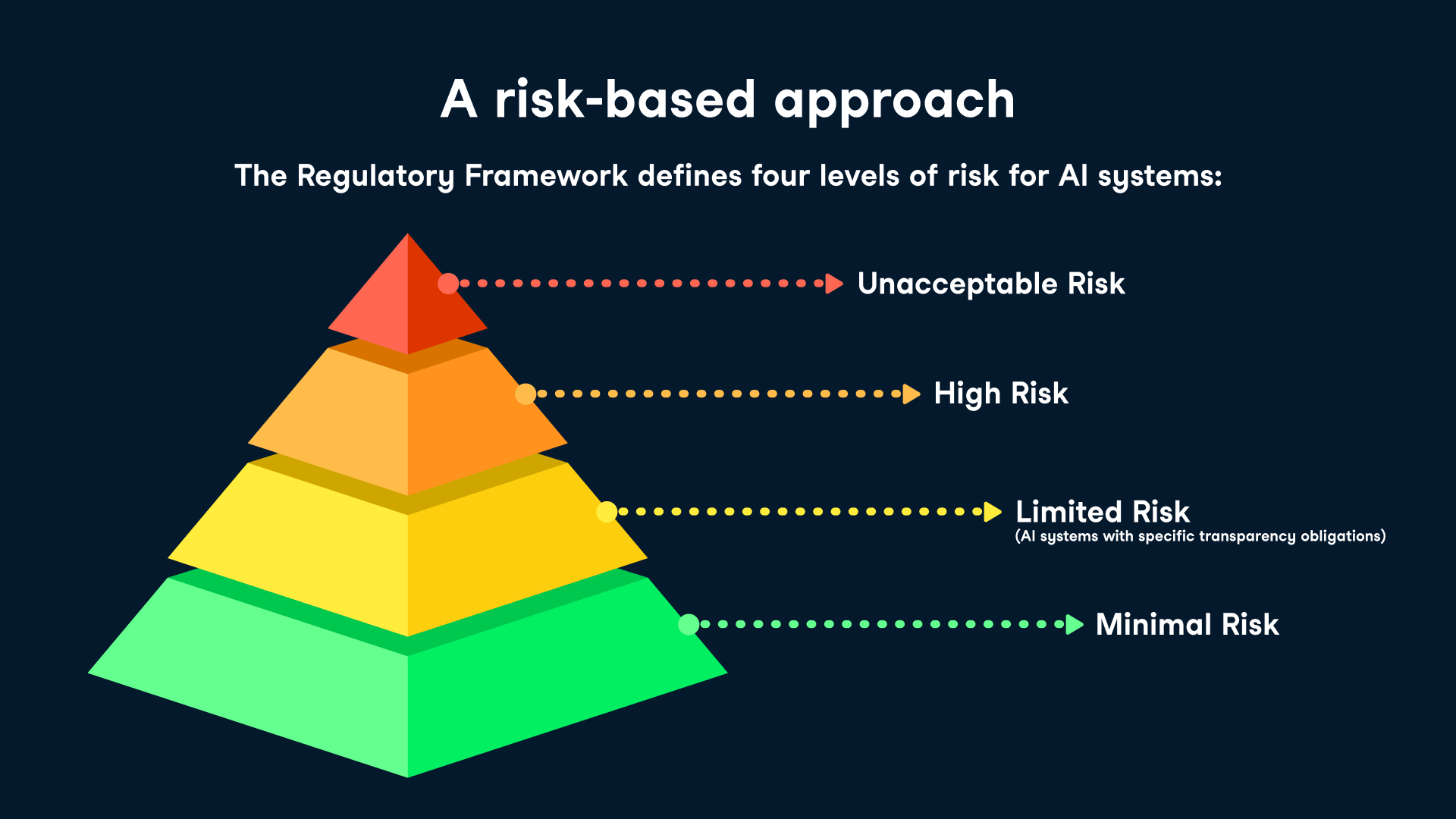Prepare your business for the EU AI Act
From August 1, 2024, Article 4 of the EU AI Act states that all employees working with AI systems must have a suitable level of AI literacy. To help your business understand what is required to become compliant, we’ve built an AI learning program to help your team prepare for the Act.
- Understand AI risk categories and compliance
- Upskill your team on vital AI literacy skills
- No prior AI, technical, or coding knowledge is required
- Pass the EU AI Act Literacy Certification upon completion
Certify your workforce on the EU AI Act
Prove skills at scale. Validate the steps your team is taking to comply with Article 4, and learn how to integrate AI safely and effectively, with an industry-leading certification.

Upskill your business on AI
From AI literacy to leadership principles and technical skills, access everything your business needs to use AI safely and effectively.
With the EU AI Act Fundamentals Skill Track, any employee can start from scratch and gain the skills they need to work with AI.
Data and AI technologies are transforming industries. With 500+ courses, ensure your team has the skills to thrive in this new era.
EU AI Literacy Act curriculum: sample courses
Understanding Artificial Intelligence
Generative AI for Business
Resources on the EU AI Act
Don't fall behind. Future-proof your organization with data and AI literacy.
The EU AI Act's regulatory framework
